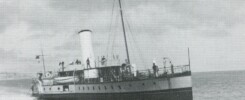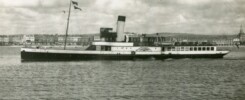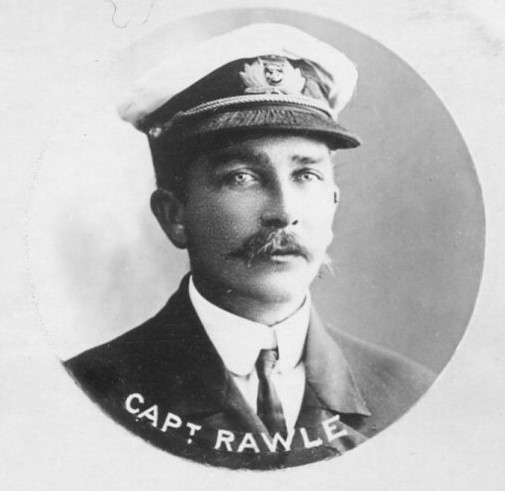
On Saturday 11th May 1916 at Holy Trinity Church Weymouth the funeral took pace of Cosens’s master Captain Philip St Barbe Rawle who had lost his life at Newhaven Harbour on 6th May.
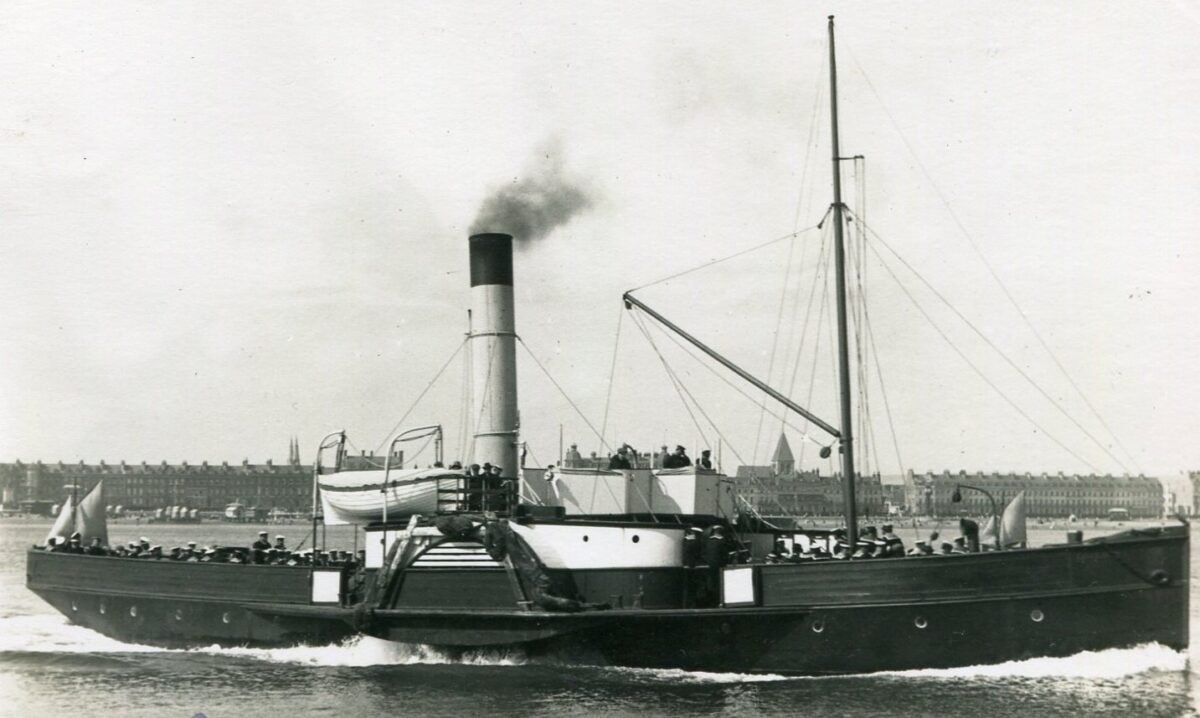
Captain Rawle had gained his first command with Queen in 1896 and was promoted onto Empress, Victoria and then Monarch in the ensuing years.
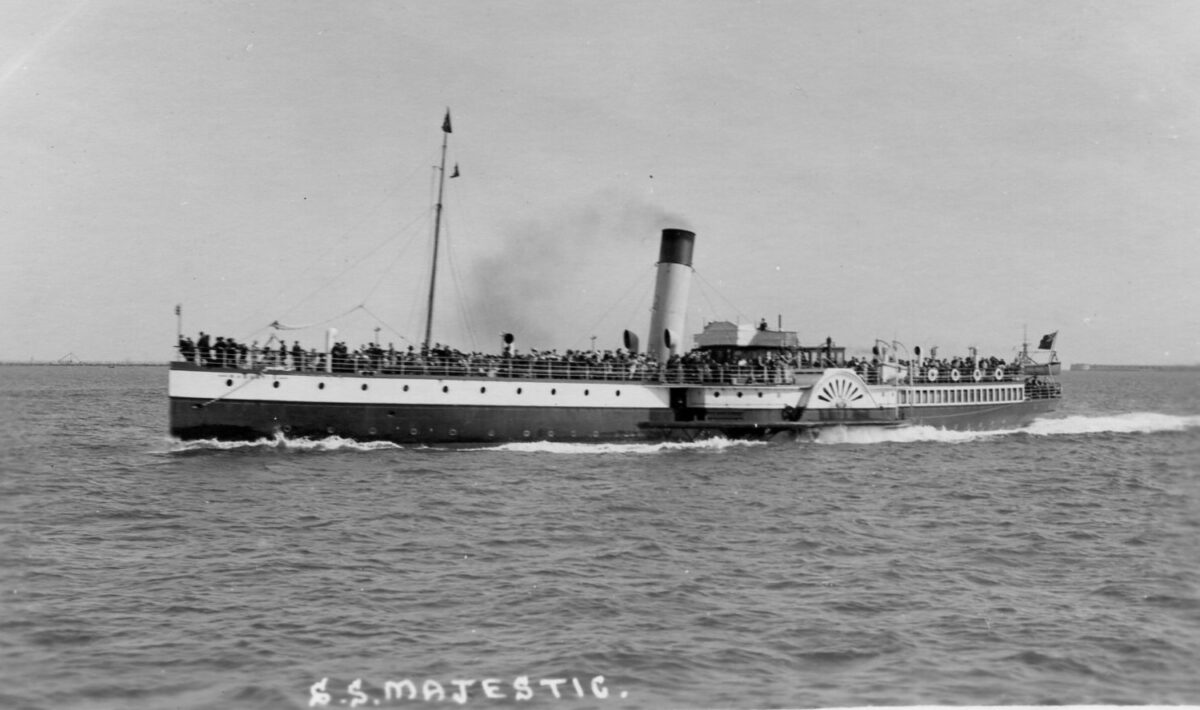
In 1901 he became commodore captain in command of the company’s latest and most prestigious flagship Majestic. He had done all that within just five years so he must have been highly competent as a ship handler and ship master as well as being well regarded by the Cosens’s board.
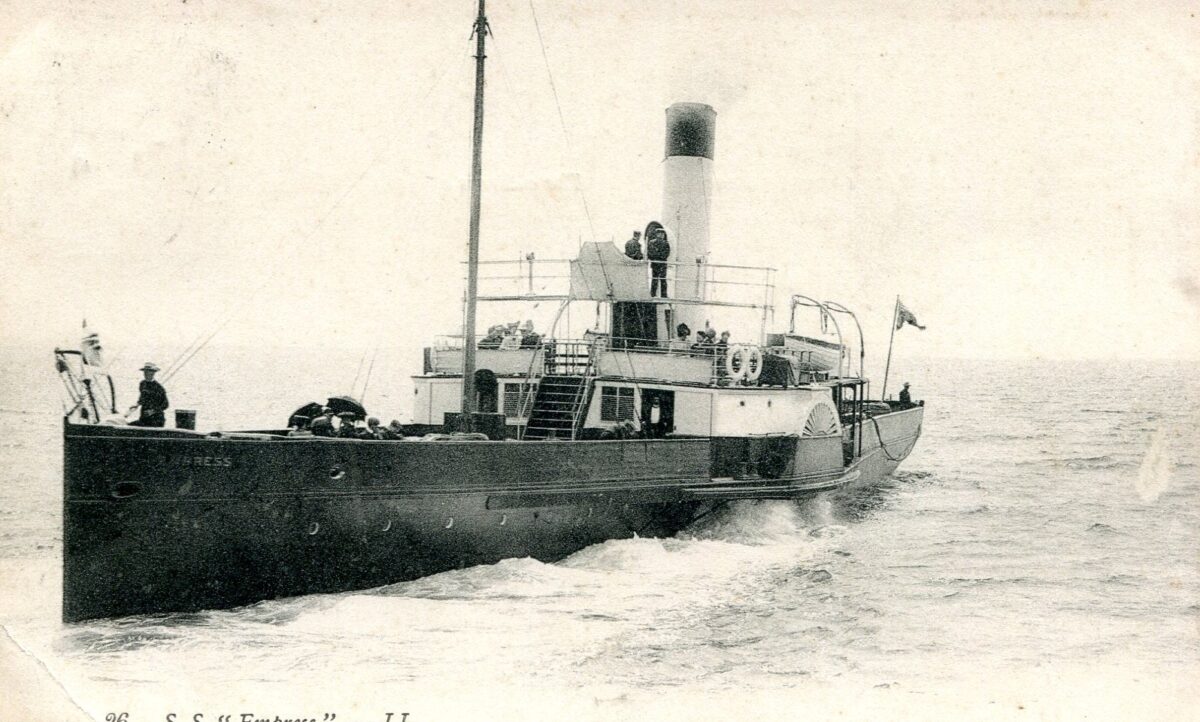
He did not go to war with Majestic which sailed in the autumn of 1916 for service in the Mediterranean. Instead he once again became master of the Empress then based at Newhaven as part of the Government’s Examination Service for inspecting ships transiting that part of the English Channel.
Then on this night he died. The service sheet for his funeral at Holy Trinity Church in Weymouth on 11th May declared that he had been “accidentally drowned at Newhaven”.
And yet. And yet. Maybe he was. Maybe he slipped on the ladder, lost his footing, hit his head on the way down and that was that. And yet. And yet. Of course that is a perfectly plausible explanation. And yet. And yet. Of course a captain may lose his footing just like anyone else. Yet captains of experience, and he was very experienced, are perhaps more likely to be sure footed than their less experienced counterparts. By dint of their knowledge and training they are perhaps better placed to see dangers ahead of them and know how to avoid accidents rather than being the subject of them
And then I wonder about the crew. What were they like? We know that during both world wars finding quality hands to work on the locally based paddle steamers on war work was hard and that some crew members could be on the wrong side of rough including as they did those not on official military service for whatever reason as well sometimes as those just released from prison. Might there have been someone in the vicinity that night who had taken against this ever demanding captain, as they saw it, with the hoity toity double barrelled surname? Maybe such a person saw his opportunity to get his own back over some real or imagined slight and took his chance. It might have been easy to do with nobody watching. Bang. Splash. Then raise the alarum to say that the captain has fallen in. Or scurry away quietly unseen instead.
I remember the gentle and quietly spoken Captain Harry Defrates showing me the gun which he carried when master of paddle steamers in my youth in the 1950s and 1960s which he felt was a necessity for keeping passengers in order in the event of a disaster. I remember him also saying that whilst master of Consul based at Newhaven for the summer of 1963 he had been approached by a ship owner to ask if he would take a ship to South Africa for him after the season and saying that for that sort of work with a rough crew a master needed to have a gun with him. And Captain Defrates was such a quiet, kind and unassuming man. He was chairman of the Weymouth Conservative Association for goodness sake.
In all this I think that we need to remember how the world has changed in the last century. In the Victorian and Edwardian eras in which Captain Defrates was a boy and in which Captain Rawle was a young man guns and violence were not unknown. In the short stories of Arthur Conan Doyle, Sherlock Holmes and Doctor Watson often took a revolver with them on their sorties to solve crimes and were not averse to firing it off willy-nilly to catch the crooks and ensure that right, as they saw it, prevailed over wrong. The great Victorian social reformer Charles Dickens, whose best selling novels did so much to flag up social injustice in Victorian Britain, kept a loaded gun in his kitchen at his home at Gad’s Hill just outside Rochester to repel burglars. It was a different age. People saw things in a different way and did things differently back then.
As to Captain Rawle’s demise there is no way of knowing for certain what actually happened to him on that fateful night. Maybe he had had one too many beers and just slipped in. Maybe he was teetotal, stone cold sober and just lost his footing. Or maybe it was a night for settling old scores at a time when truth and solving crime played second fiddle to keeping up the national morale and winning the war.
Kingswear Castle returned to service in 2023 after the first part of a major rebuild which is designed to set her up for the next 25 years running on the River Dart. The Paddle Steamer Kingswear Castle Trust is now fund raising for the second phase of the rebuild. You can read more about the rebuilds and how you can help if you can here.
John Megoran
This article was first published on 11th May 2021.

